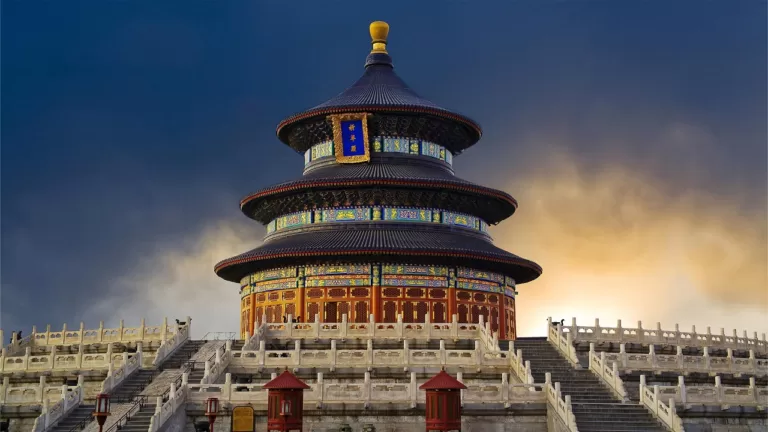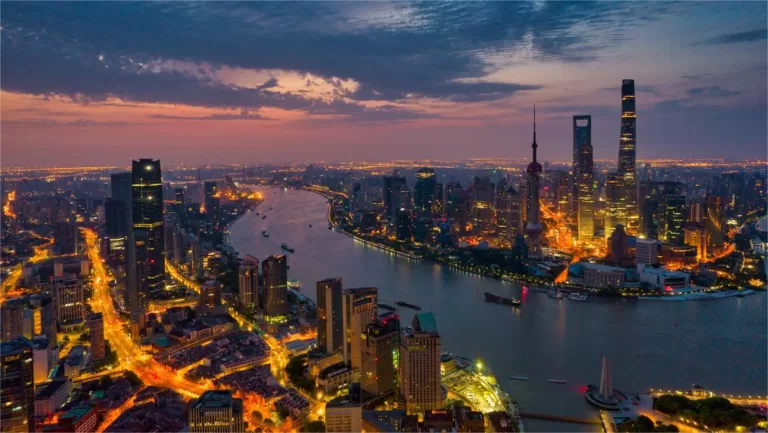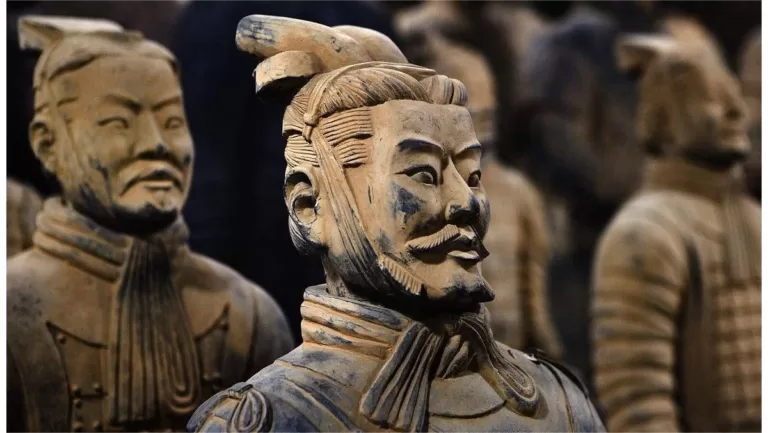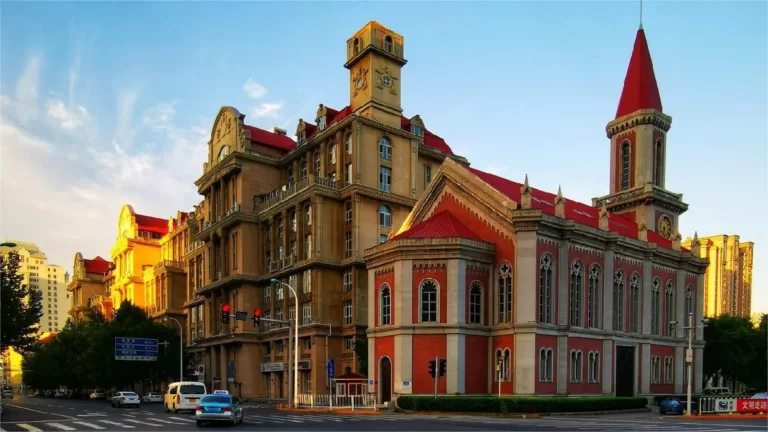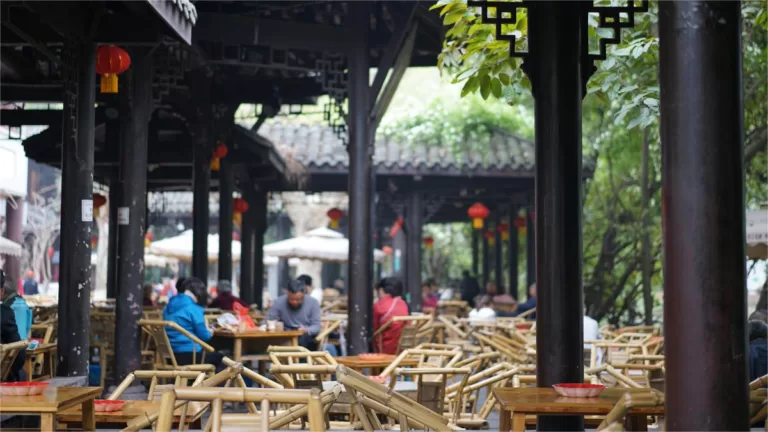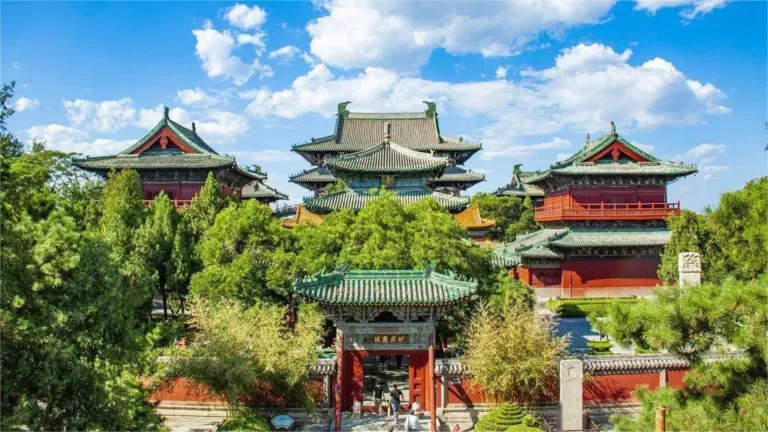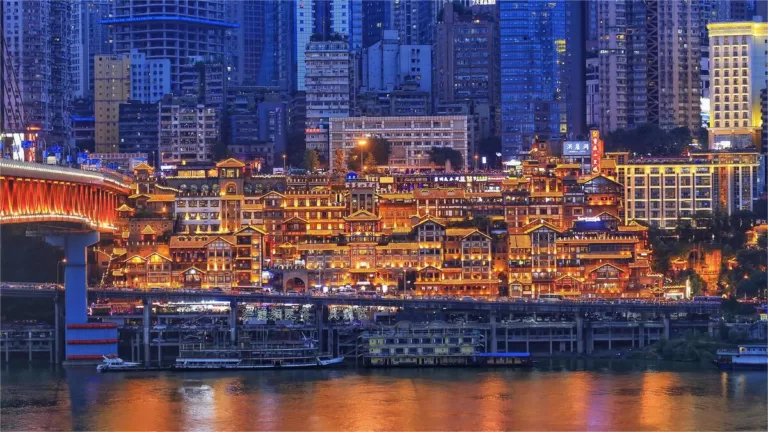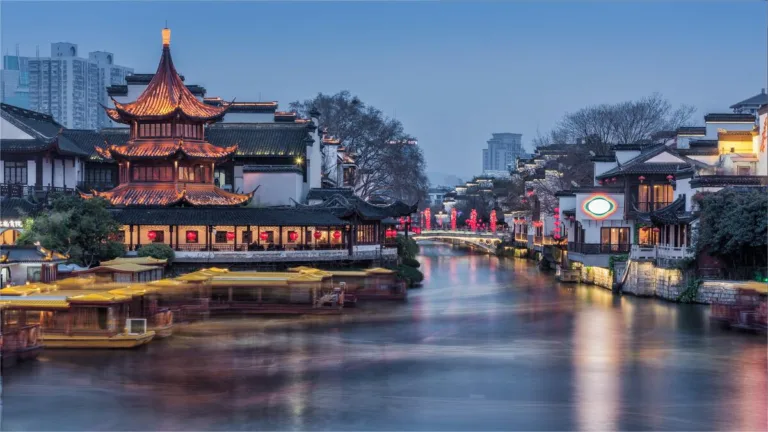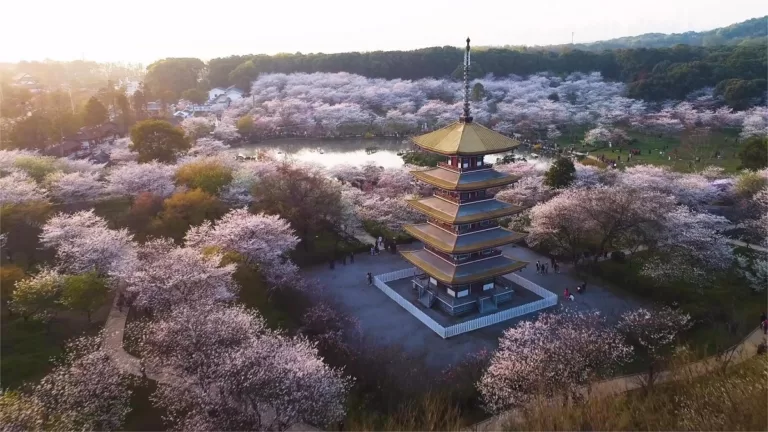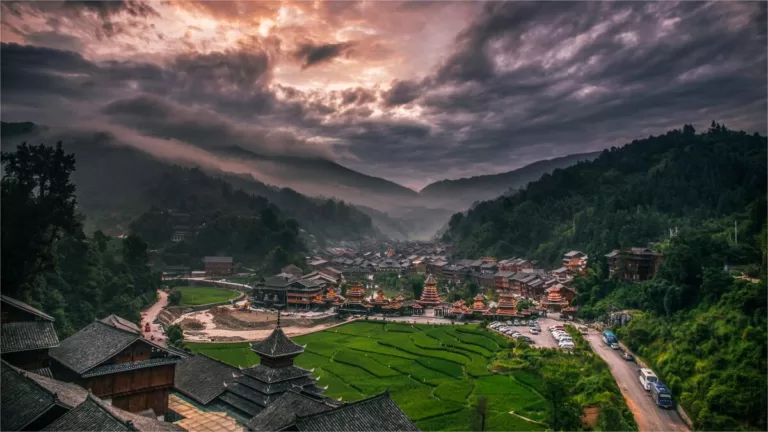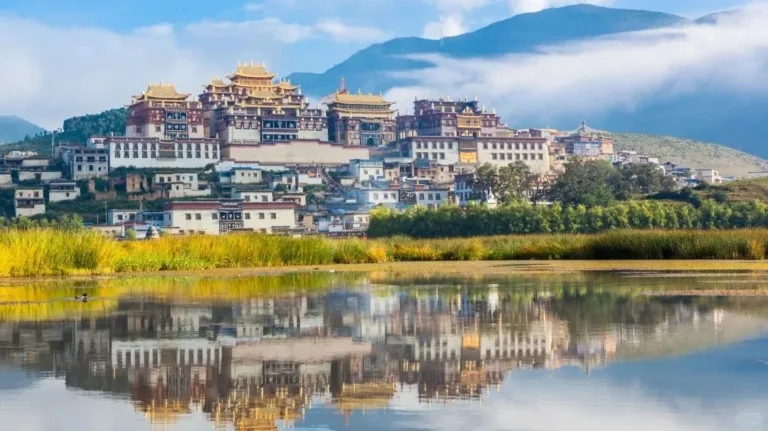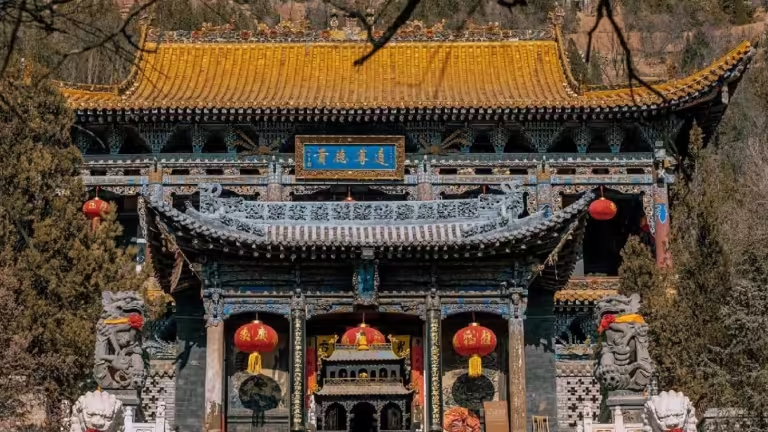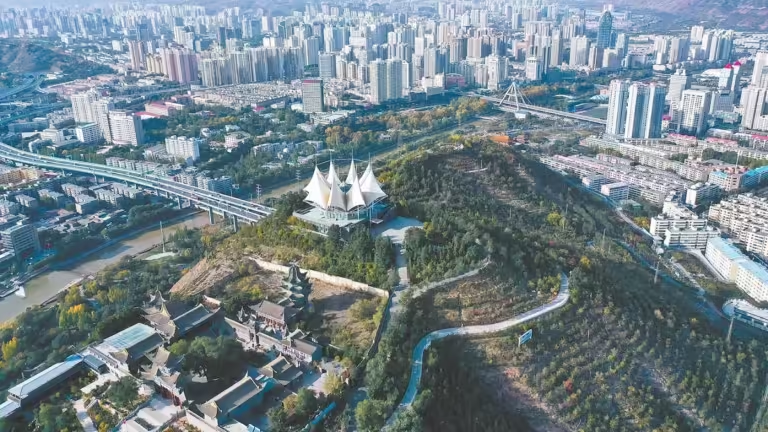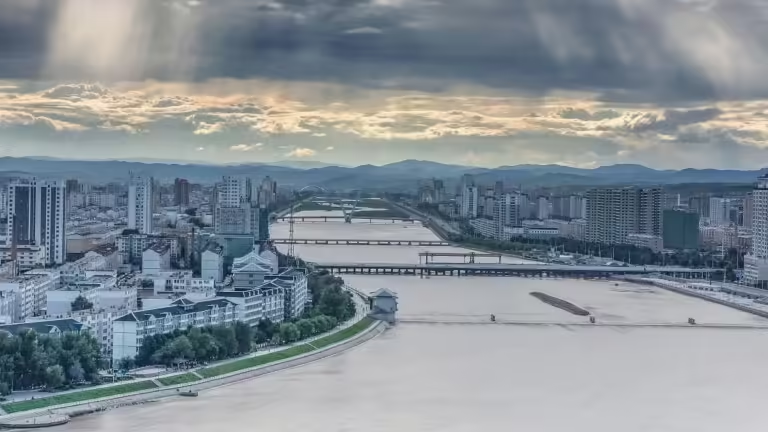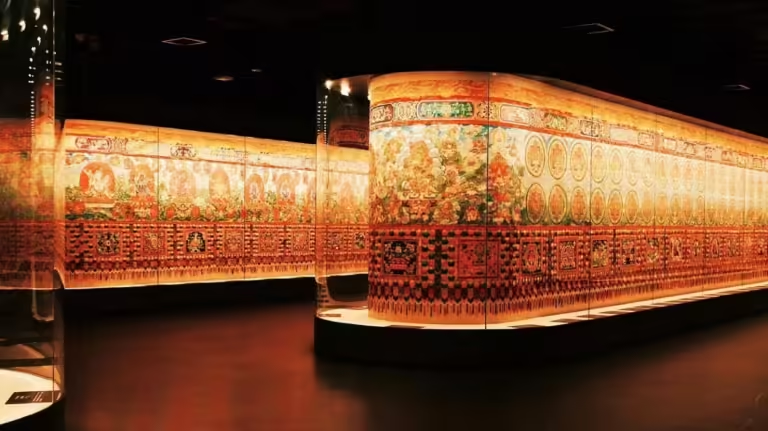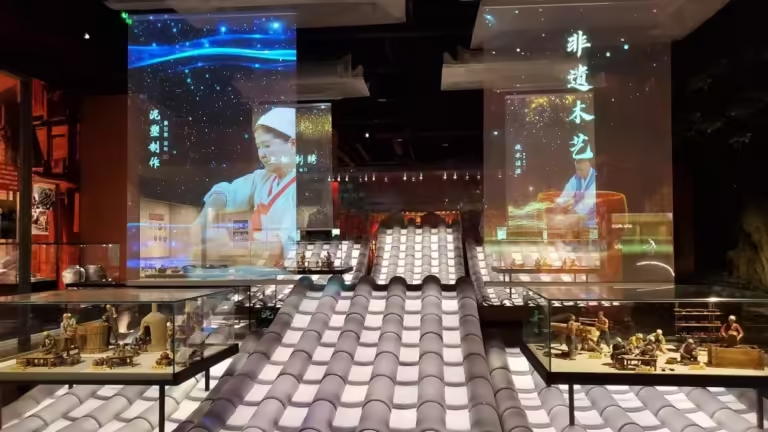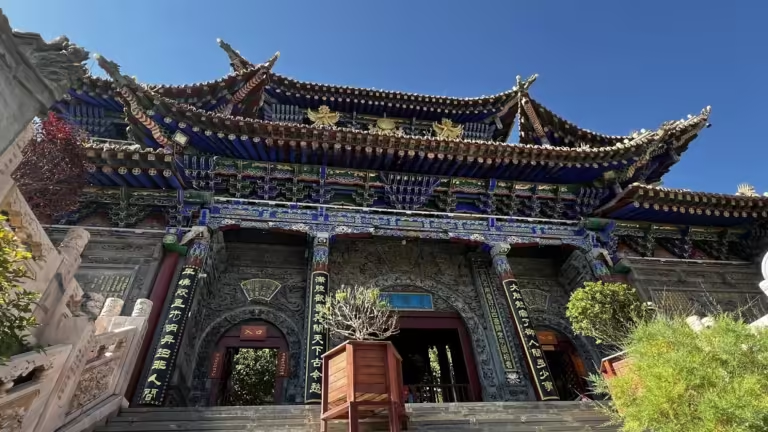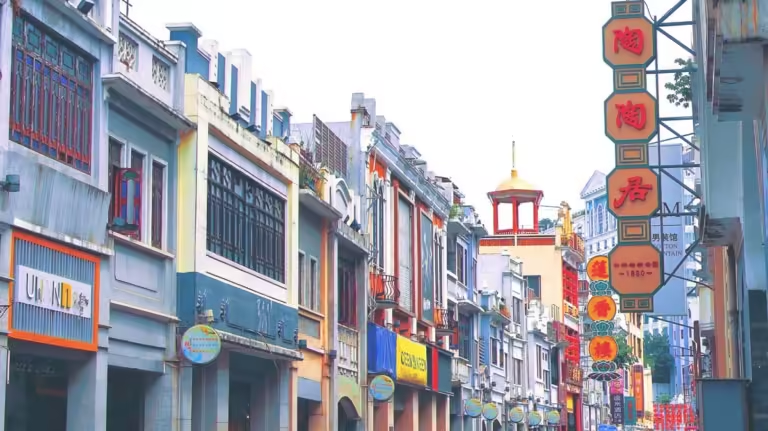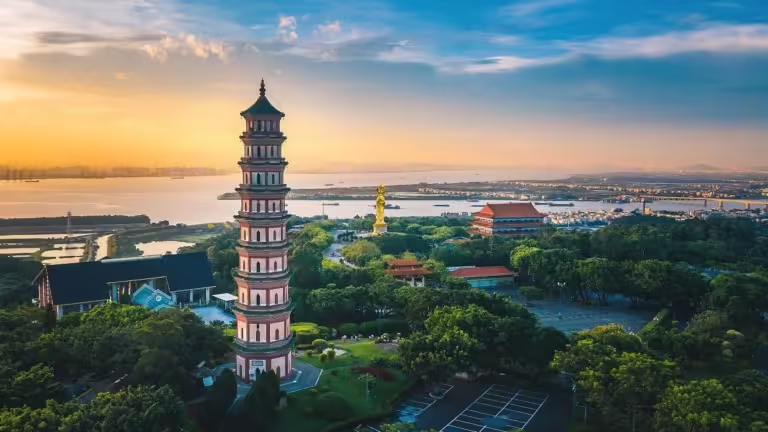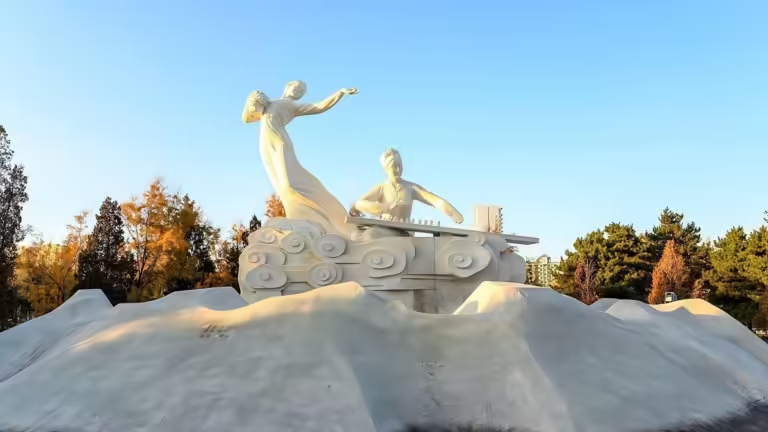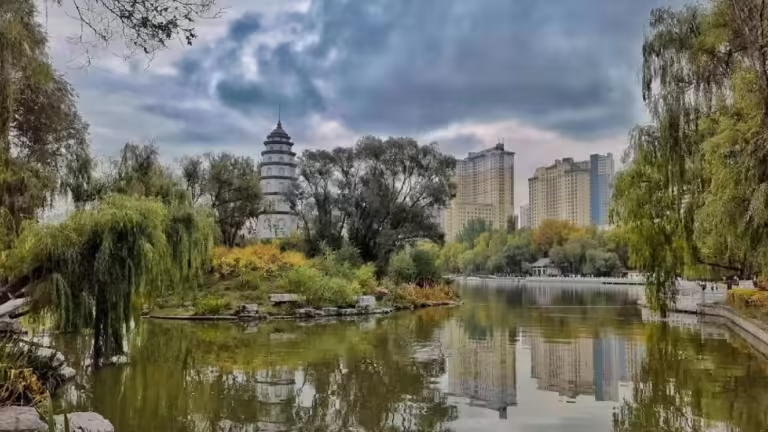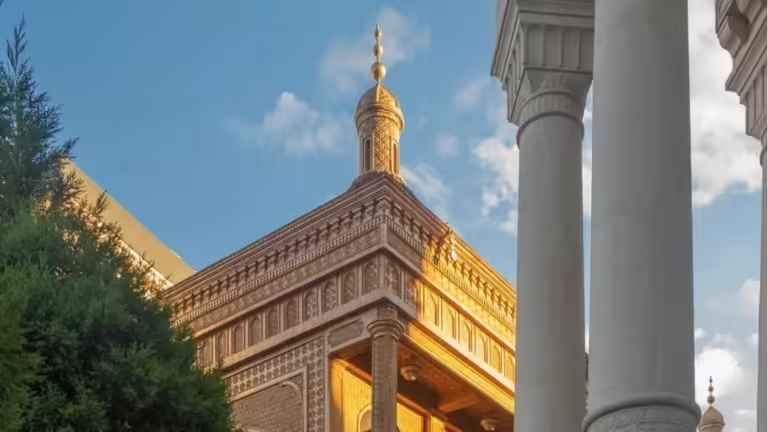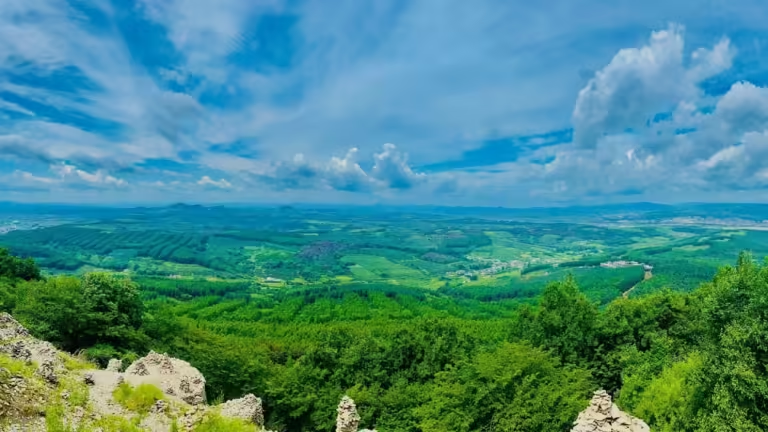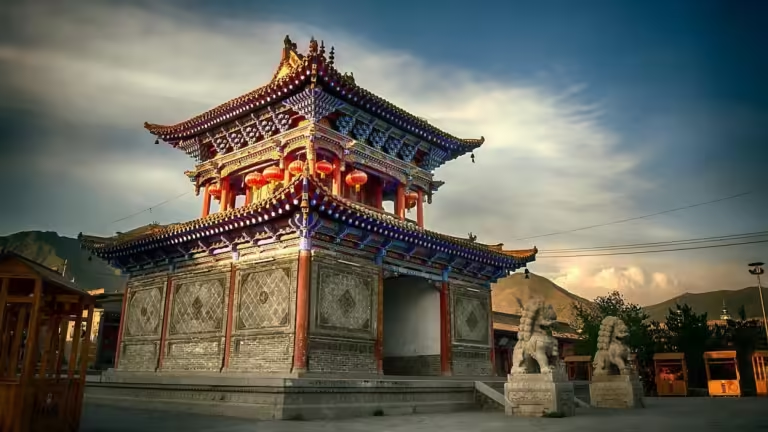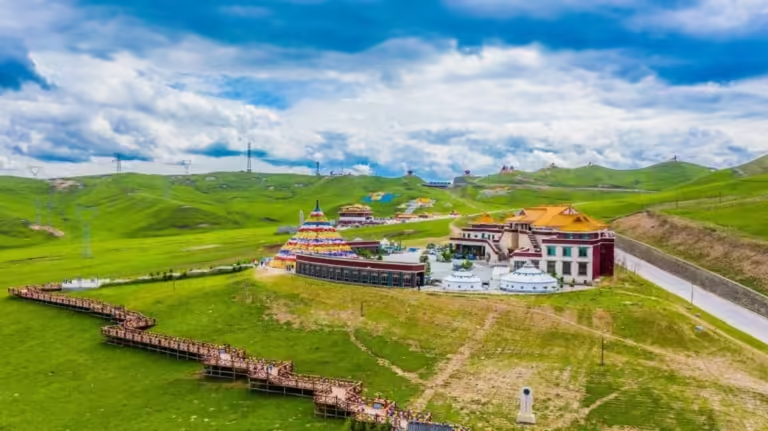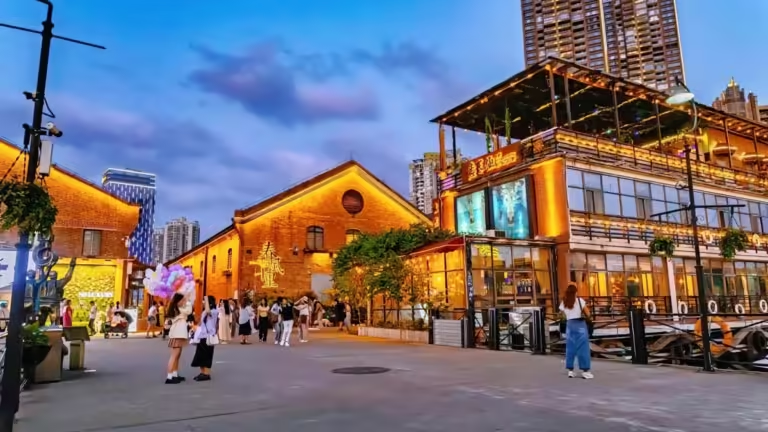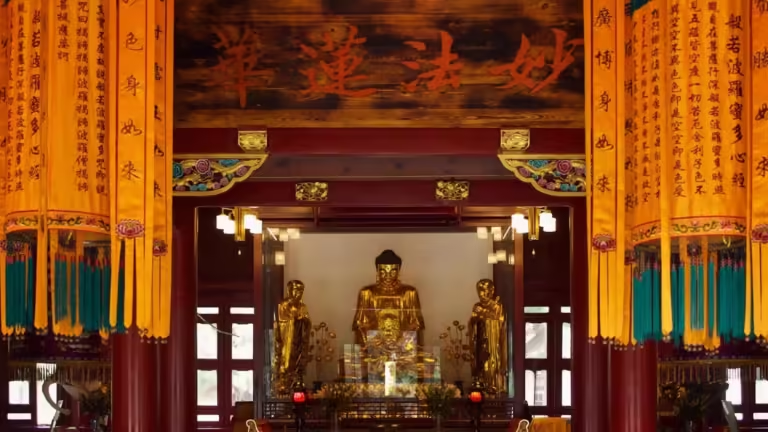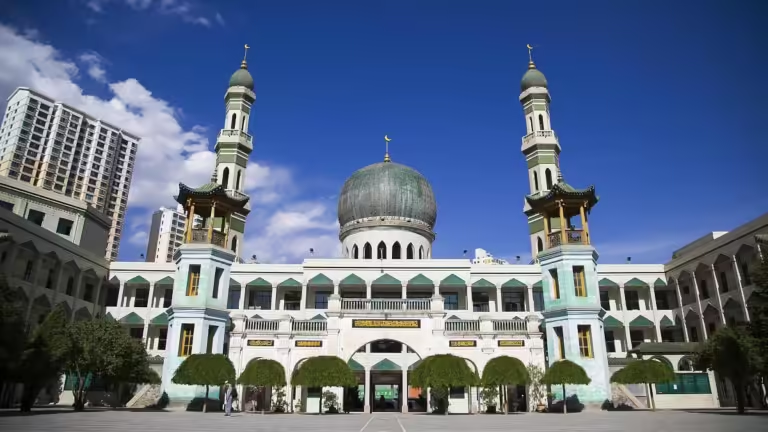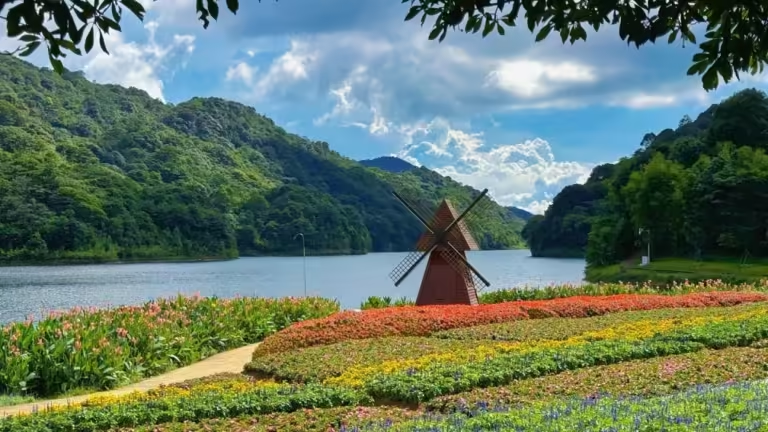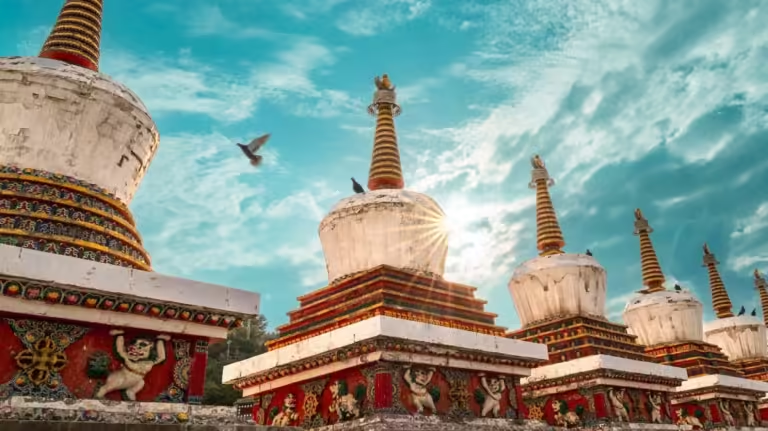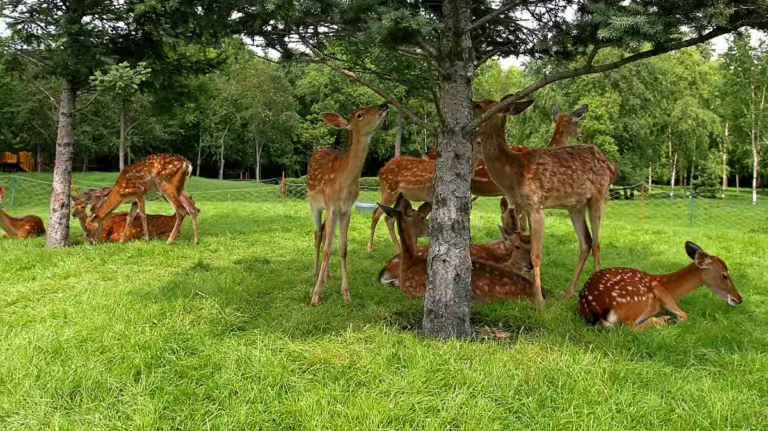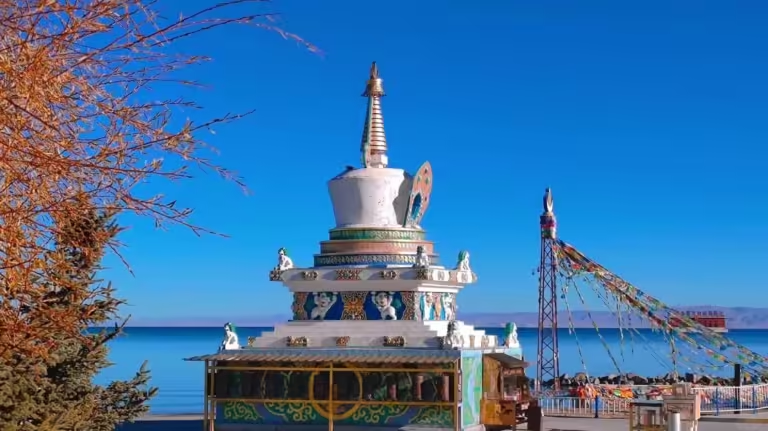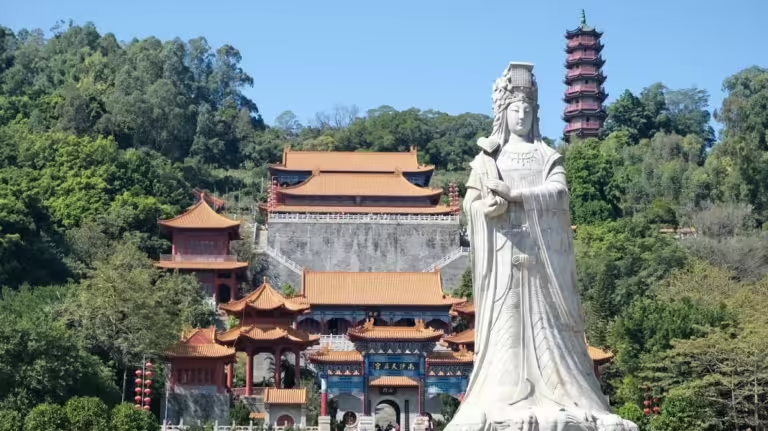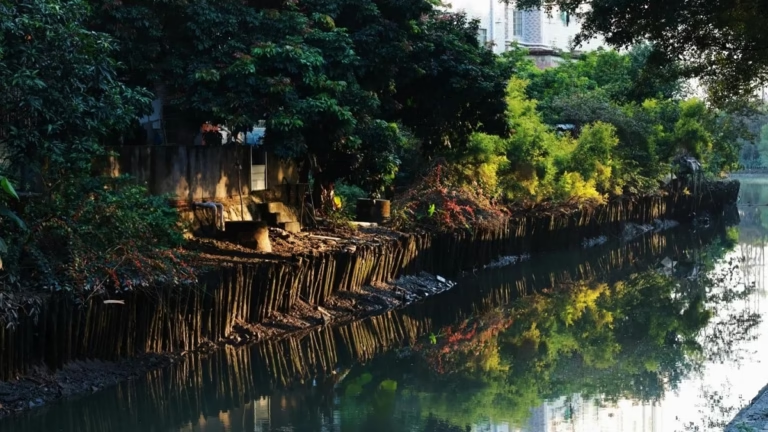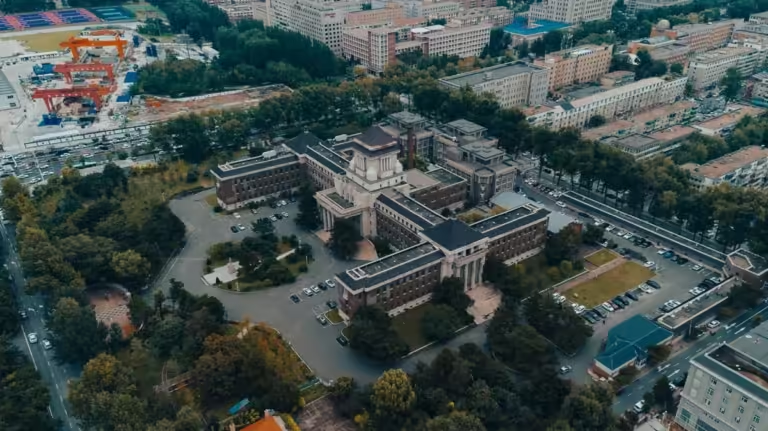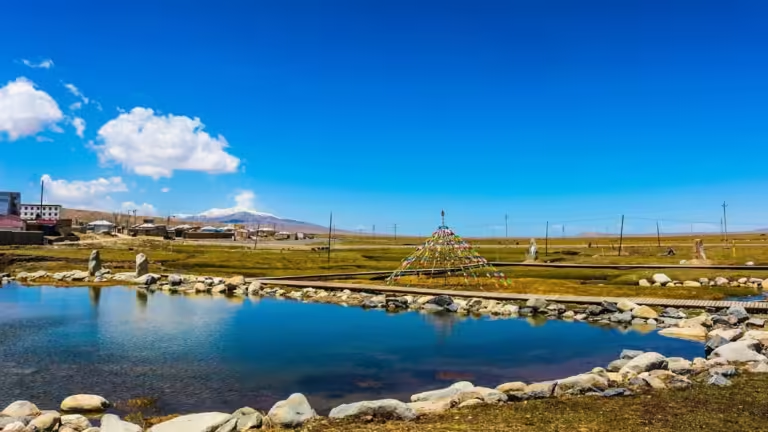Chinatripedia
Everything You Need to Know about Traveling in China
China Travel Guide
Beijing, situated in the northern part of the North China Plain, is surrounded by the Yanshan and Taihang mountain ranges. It is not just a capital city...
Shanghai, a city as deep and enchanting as the sea, has evolved from a quaint Jiangnan town two hundred years ago to a vast metropolis teeming with countless...
With a rich history and profound cultural heritage, Shaanxi boasts three UNESCO World Heritage Sites: the Great Wall, the Terracotta Army of Qin Shi Huang,...
Tianjin, located along the Bohai Sea in the northern part of China, is a vibrant city adjacent to the capital, Beijing. Its strategic geographical position...
Sichuan Province, situated in the southwest hinterland of China, marks the headwaters of the Yangtze River. Its western region encompasses the Qinghai-Tibet...
Hebei Province, situated in the heart of the North China Plain along the northern banks of the Yellow River, earns its name from its geographical positioning...
Chongqing, situated in the southwestern part of China along the upper reaches of the Yangtze River, holds a rich history as a wartime capital and attained...
Jiangsu Province boasts incredibly rich tourism resources, with its natural and cultural landscapes centered around gardens, Taihu Lake, and the Yangtze...
Hubei, located in central China along the middle reaches of the Yangtze River and north of Dongting Lake, derives its name from its geographical position,...
Guizhou Province, often abbreviated as “Gui” or “Qian”, boasts Guiyang as its capital city. Situated in the southwestern part of...
Henan Province is considered the cradle of Chinese civilization and the heartland of the Chinese nation, serving as the historical and cultural center...
Zhejiang Province is located on the southeastern coast of China, at the southern wing of the Yangtze River Delta, with Hangzhou as its capital. Historically,...
Yunnan Province, located in the southwestern frontier of China, has its capital in Kunming. During the Warring States period, it was home to the Dian tribe....
Shandong Province, the birthplace of Confucian culture and home to famous philosophers such as Confucius and Mencius, is rich in historical significance....
Fujian Province, abbreviated as “Min,” is located on the southeastern coast of China, facing Taiwan across the Taiwan Strait. With a forest...
Gansu Province, abbreviated as Gan or Long, derives its name from the historical regions of Ganzhou (modern-day Zhangye) and Suzhou (now Jiuquan). This...
Guangxi, located in southern China, is a region of stunning landscapes and vibrant culture. Positioned on the southeastern edge of the Yunnan-Guizhou Plateau,...
Jiangxi, also known as “Ganpo Land” or “Gan,” gets its name from the Gan River and was officially established as Jiangnan West...
Heilongjiang Province, named after the Heilong River (also known as the Amur River), is the northernmost and easternmost province in China. It is the province...
Shanxi, located in the northern part of China, is rich in cultural heritage and boasts numerous well-preserved historical sites. The province is home to...
Anhui Province is located in the central-eastern part of China, and its name dates back to the Spring and Autumn Period and the Warring States Period....
Liaoning Province, abbreviated as “Liao,” is located in the southern part of Northeast China. Its capital is Shenyang. The province borders...
When you think of Inner Mongolia, the image that likely comes to mind is its vast and free-spirited grasslands. The wide blue skies, crystal-clear lakes,...
Hunan Province, located in the middle reaches of the Yangtze River in southern China, is named “Hunan” due to its location south of Dongting...
Latest articles
The Guangzhou Municipal Museum (广州市博物馆) is located in Yuexiu Park, Guangzhou, Guangdong Province, with a total building area of 7,600 square meters. Established...
Changbai Mountains (长白山, Forever-White Mountain), located in the southeastern part of Jilin Province, are the highest mountain range along the eastern...
Beichan Temple (北禅寺, North Zen Temple), also known as Tulouguan (土楼观) is situated on the northern slopes of Beishan Mountain, at an altitude of over 2,400...
Yuyin Garden (余荫山房, Yuyin Shanfang, Yuyin Mountain Villa), a private garden from the Qing Dynasty, was built by Wu Bin, a successful imperial scholar,...
Nanshan Park (南山公园) is a stunning mountain forest park located in Xining, Qinghai Province. Designed as a multifaceted recreational area, the park integrates...
The Bu’erhatong River (布尔哈通河), historically known as Xingxian Water (星显水) during the Jin Dynasty and later as Bu’erhatong and Bu’erhatu...
Guangzhou Zoo (广州动物园), established in 1958, is one of China’s largest urban zoos, alongside Beijing Zoo and Shanghai Zoo. Spanning 42 hectares, it...
The Tibetan Medicine Culture Museum (藏医药文化博物馆), also known as the Qinghai Tibetan Culture Museum (青海藏文化博物馆), officially opened on May 1, 2007. Covering...
The Museum of Yanbian Korean Autonomous Prefecture (延边朝鲜族自治州博物馆), located in Yanji City, Jilin Province, China, serves as a significant local historical...
Nanchan Temple (南禅寺), also known as Nanshan Temple (南山寺), is located in Xining, Qinghai Province, and faces Beichan Temple from a distance. The temple’s...
Shangxiajiu Pedestrian Street (上下九步行街) is located in Liwan District of Guangzhou, Guangdong Province, an area traditionally known as Xiguan. It is one...
The Korean Ethnic Minority Folk Village (朝鲜族民俗园), located in Yanji City, Jilin Province, covers an area of 9.4 hectares with a building area of 6,145 square...
Xining Wildlife Park (西宁野生动物园), also known as the Qinghai Wildlife Rescue and Breeding Center or the Qinghai-Tibet Plateau Wildlife Park, is home to over...
Lotus Mountain (莲花山, Lianhua Mountain), located in the eastern part of Panyu District in Guangzhou, was originally named “Stone Lion’s Head...
Yanji People’s Park (延吉人民公园) is located in the northwest part of Yanji city, offering a beautiful natural setting with tall ancient trees, blooming...
Xining People’s Park (西宁人民公园), established in 1959, covers over 40 hectares and is the largest public recreational park in Xining. At its heart lies...
Nanguan Mosque (南关清真寺), located in Xining, was originally constructed in 1934 during the Republic of China era with the personal approval of Ma Bufang....
Chimelong International Circus (长隆国际大马戏) is a spectacular entertainment venue that showcases a stunning array of circus performances featuring over 300...
Mao’er Mountain National Forest Park (帽儿山国家森林公园) is located in Yanji City, Jilin Province. The mountain is covered with a variety of trees such as...
Danga’er Ancient City (丹噶尔古城), derived from the Tibetan term “Dongke’er,” meaning “white sea conch,” is located on the north bank of the Yellow...
Riyue Mountain (Sun and Moon Mountain, 日月山), part of the Qilian Mountain range, stretches for 90 kilometers and serves as a natural barrier to the east...
Taigucang Wharf (太古仓码头, Taikoo Wharf, Former Butterfield & Swire Godowns & Wharves) is located in the Haizhu District of Guangzhou, China. It was...
Huguo Banruo Temple (护国般若寺, also known as Bore Temple) is located in Changchun, Jilin Province, and is the largest Buddhist temple in the city, covering...
Dongguan Grand Mosque (西宁东关清真大寺), commonly known as the “Camel Mosque,” is one of the five major Jumu’ah mosques in China. Covering an...
Shimen National Forest Park (石门国家森林公园), located in Guangzhou, covers an impressive area of 2,636 hectares with a remarkable forest coverage rate of 98.9%....
The Jilin Provincial Museum (吉林省博物院), established in 1951 and relocated to Changchun in 1954, is a prominent cultural institution in Jilin Province, China....
Kumbum Monastery, also known as Ta’er Monastery (塔尔寺), is located in Xining, Qinghai Province, China. It was founded in 1379 during the Ming Dynasty...
Dafu Mountain Forest Park (大夫山森林公园), located in the Panyu District of Guangzhou, covers an area of approximately 9,000 acres. It is surrounded by continuous...
Changchun Siberian Tiger Park (长春东北虎园), established on April 26, 2009, is a large wildlife reserve in China designed to protect and rehabilitate endangered...
Bird Island (鸟岛) in Qinghai Lake is named for the tens of thousands of migratory birds that inhabit it. The island consists of two smaller islets: Haixi...
Beijing, the vibrant capital of China, is a vast metropolis with a well-developed transportation network that makes getting around the city convenient...
Changchun Zoological and Botanical Park (长春动植物公园), covering 74 hectares with 8.8 hectares of water and 0.8 hectares of buildings, is a specialized park...
Baishui Village (白水寨, Baishuizhai, White Water Village) is located in Zengcheng District, Guangzhou, covering an area of approximately 170 km². It lies...
Erlangjian Scenic Area (二郎剑景区), located on the southern side of Qinghai Lake, is one of the main attractions in the region. The scenic area is divided...
Nansha Tianhou Palace (南沙天后宫), also known as the Mazu Temple (妈祖庙), is located in Guangzhou, China, and spans an impressive area of 180,000 square meters....
The Museum of the History of Northeast China’s Occupation (东北沦陷史陈列馆) covers an area of 26,500 square meters and was officially opened on September...
The Jinyintan Grasslands (金银滩草原), located in the Qinghai Province, is a vast expanse of natural beauty spanning approximately 1,100 square kilometers....
Huangpu Old Port (黄埔古港) is located in Haizhu District, Guangzhou. In 1685, the Qing government established the Canton Customs House, and all foreign merchant...
The Eight Departments of Manchukuo (伪满八大部) were the primary governing bodies of the puppet state of Manchukuo, established in 1932 when the last Chinese...
Daotang River (倒淌河), located in the northwest of China, originates from the western side of Sun and Moon Mountain. It stretches over 40 kilometers and...
Beijing offers a wide variety of hotels and accommodations, ranging from luxury hotels to budget-friendly options. Throughout the city, visitors can find...
The Former Site of Whampoa Military Academy Museum (黄埔军校旧址纪念馆) covers an area of 71,939 square meters with an exhibition space of 1,700 square meters....
Changchun World Sculpture Park (长春世界雕塑园) covers an area of 92 hectares, including 11.8 hectares of water. The park features 454 sculptures created by 404...
Qinghai Lake (青海湖), historically known as “Xihai (西海/West Sea)” and also called “Kuku Nor,” which means “blue sea”...
Chaka Salt Lake (茶卡盐湖), located in the Haixi Mongolian and Tibetan Autonomous Prefecture of Qinghai Province, China, sits at an average altitude of 3,059...
Guangdong Museum (广东博物馆), initially planned in 1957 and officially opened in 1959, is the only comprehensive provincial museum in Guangdong. In 2004, construction...
Changchun Nanhu Park (长春南湖公园) is the second-largest urban park in China, following the renowned Summer Palace in Beijing. Originally established during...
Shangfeng Temple (上封寺), located at the foot of the highest peak in Hunan Province, Mount Zhurong, is one of the oldest temples in the Mount Heng region....
In the slow flow of time, Yueyang, a historic city with a 2,500-year history, preserves its unique cultural landscapes, well worth our careful appreciation....
Many people associate Xiangxi with stories of bandits, but once you step into this land, you’ll be captivated by its breathtaking landscapes and...
There’s a saying: “Jiuzhaigou is famous for its water, while Zhangjiajie is famous for its mountains.” Zhangjiajie boasts the Wulingyuan...
The Guangzhou Municipal Museum (广州市博物馆) is located in Yuexiu Park, Guangzhou, Guangdong Province, with a total building area of 7,600 square meters. Established...
Changbai Mountains (长白山, Forever-White Mountain), located in the southeastern part of Jilin Province, are the highest mountain range along the eastern...
Beichan Temple (北禅寺, North Zen Temple), also known as Tulouguan (土楼观) is situated on the northern slopes of Beishan Mountain, at an altitude of over 2,400...
Yuyin Garden (余荫山房, Yuyin Shanfang, Yuyin Mountain Villa), a private garden from the Qing Dynasty, was built by Wu Bin, a successful imperial scholar,...
Nanshan Park (南山公园) is a stunning mountain forest park located in Xining, Qinghai Province. Designed as a multifaceted recreational area, the park integrates...
The Bu’erhatong River (布尔哈通河), historically known as Xingxian Water (星显水) during the Jin Dynasty and later as Bu’erhatong and Bu’erhatu...
Guangzhou Zoo (广州动物园), established in 1958, is one of China’s largest urban zoos, alongside Beijing Zoo and Shanghai Zoo. Spanning 42 hectares, it...
The Tibetan Medicine Culture Museum (藏医药文化博物馆), also known as the Qinghai Tibetan Culture Museum (青海藏文化博物馆), officially opened on May 1, 2007. Covering...
The Museum of Yanbian Korean Autonomous Prefecture (延边朝鲜族自治州博物馆), located in Yanji City, Jilin Province, China, serves as a significant local historical...
Nanchan Temple (南禅寺), also known as Nanshan Temple (南山寺), is located in Xining, Qinghai Province, and faces Beichan Temple from a distance. The temple’s...
Shangxiajiu Pedestrian Street (上下九步行街) is located in Liwan District of Guangzhou, Guangdong Province, an area traditionally known as Xiguan. It is one...
The Korean Ethnic Minority Folk Village (朝鲜族民俗园), located in Yanji City, Jilin Province, covers an area of 9.4 hectares with a building area of 6,145 square...
Xining Wildlife Park (西宁野生动物园), also known as the Qinghai Wildlife Rescue and Breeding Center or the Qinghai-Tibet Plateau Wildlife Park, is home to over...
Lotus Mountain (莲花山, Lianhua Mountain), located in the eastern part of Panyu District in Guangzhou, was originally named “Stone Lion’s Head...
Yanji People’s Park (延吉人民公园) is located in the northwest part of Yanji city, offering a beautiful natural setting with tall ancient trees, blooming...
Xining People’s Park (西宁人民公园), established in 1959, covers over 40 hectares and is the largest public recreational park in Xining. At its heart lies...
Nanguan Mosque (南关清真寺), located in Xining, was originally constructed in 1934 during the Republic of China era with the personal approval of Ma Bufang....
Chimelong International Circus (长隆国际大马戏) is a spectacular entertainment venue that showcases a stunning array of circus performances featuring over 300...
Mao’er Mountain National Forest Park (帽儿山国家森林公园) is located in Yanji City, Jilin Province. The mountain is covered with a variety of trees such as...
Danga’er Ancient City (丹噶尔古城), derived from the Tibetan term “Dongke’er,” meaning “white sea conch,” is located on the north bank of the Yellow...
Riyue Mountain (Sun and Moon Mountain, 日月山), part of the Qilian Mountain range, stretches for 90 kilometers and serves as a natural barrier to the east...
Taigucang Wharf (太古仓码头, Taikoo Wharf, Former Butterfield & Swire Godowns & Wharves) is located in the Haizhu District of Guangzhou, China. It was...
Huguo Banruo Temple (护国般若寺, also known as Bore Temple) is located in Changchun, Jilin Province, and is the largest Buddhist temple in the city, covering...
Dongguan Grand Mosque (西宁东关清真大寺), commonly known as the “Camel Mosque,” is one of the five major Jumu’ah mosques in China. Covering an...
Shimen National Forest Park (石门国家森林公园), located in Guangzhou, covers an impressive area of 2,636 hectares with a remarkable forest coverage rate of 98.9%....
The Jilin Provincial Museum (吉林省博物院), established in 1951 and relocated to Changchun in 1954, is a prominent cultural institution in Jilin Province, China....
Kumbum Monastery, also known as Ta’er Monastery (塔尔寺), is located in Xining, Qinghai Province, China. It was founded in 1379 during the Ming Dynasty...
Dafu Mountain Forest Park (大夫山森林公园), located in the Panyu District of Guangzhou, covers an area of approximately 9,000 acres. It is surrounded by continuous...
Changchun Siberian Tiger Park (长春东北虎园), established on April 26, 2009, is a large wildlife reserve in China designed to protect and rehabilitate endangered...
Bird Island (鸟岛) in Qinghai Lake is named for the tens of thousands of migratory birds that inhabit it. The island consists of two smaller islets: Haixi...
Beijing, the vibrant capital of China, is a vast metropolis with a well-developed transportation network that makes getting around the city convenient...
Changchun Zoological and Botanical Park (长春动植物公园), covering 74 hectares with 8.8 hectares of water and 0.8 hectares of buildings, is a specialized park...
Baishui Village (白水寨, Baishuizhai, White Water Village) is located in Zengcheng District, Guangzhou, covering an area of approximately 170 km². It lies...
Erlangjian Scenic Area (二郎剑景区), located on the southern side of Qinghai Lake, is one of the main attractions in the region. The scenic area is divided...
Nansha Tianhou Palace (南沙天后宫), also known as the Mazu Temple (妈祖庙), is located in Guangzhou, China, and spans an impressive area of 180,000 square meters....
The Museum of the History of Northeast China’s Occupation (东北沦陷史陈列馆) covers an area of 26,500 square meters and was officially opened on September...
The Jinyintan Grasslands (金银滩草原), located in the Qinghai Province, is a vast expanse of natural beauty spanning approximately 1,100 square kilometers....
Huangpu Old Port (黄埔古港) is located in Haizhu District, Guangzhou. In 1685, the Qing government established the Canton Customs House, and all foreign merchant...
The Eight Departments of Manchukuo (伪满八大部) were the primary governing bodies of the puppet state of Manchukuo, established in 1932 when the last Chinese...
Daotang River (倒淌河), located in the northwest of China, originates from the western side of Sun and Moon Mountain. It stretches over 40 kilometers and...
Beijing offers a wide variety of hotels and accommodations, ranging from luxury hotels to budget-friendly options. Throughout the city, visitors can find...
The Former Site of Whampoa Military Academy Museum (黄埔军校旧址纪念馆) covers an area of 71,939 square meters with an exhibition space of 1,700 square meters....
Changchun World Sculpture Park (长春世界雕塑园) covers an area of 92 hectares, including 11.8 hectares of water. The park features 454 sculptures created by 404...
Qinghai Lake (青海湖), historically known as “Xihai (西海/West Sea)” and also called “Kuku Nor,” which means “blue sea”...
Chaka Salt Lake (茶卡盐湖), located in the Haixi Mongolian and Tibetan Autonomous Prefecture of Qinghai Province, China, sits at an average altitude of 3,059...
Guangdong Museum (广东博物馆), initially planned in 1957 and officially opened in 1959, is the only comprehensive provincial museum in Guangdong. In 2004, construction...
Changchun Nanhu Park (长春南湖公园) is the second-largest urban park in China, following the renowned Summer Palace in Beijing. Originally established during...
Shangfeng Temple (上封寺), located at the foot of the highest peak in Hunan Province, Mount Zhurong, is one of the oldest temples in the Mount Heng region....
In the slow flow of time, Yueyang, a historic city with a 2,500-year history, preserves its unique cultural landscapes, well worth our careful appreciation....
Many people associate Xiangxi with stories of bandits, but once you step into this land, you’ll be captivated by its breathtaking landscapes and...
There’s a saying: “Jiuzhaigou is famous for its water, while Zhangjiajie is famous for its mountains.” Zhangjiajie boasts the Wulingyuan...

